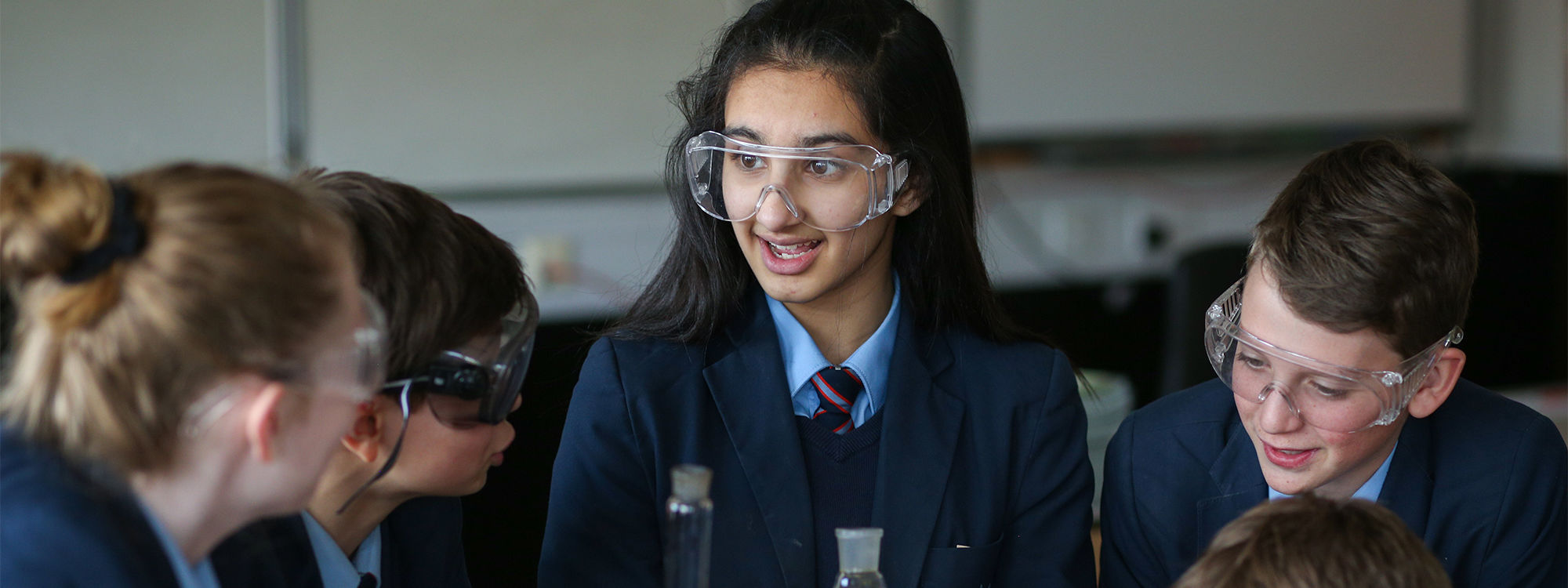Biology
Biology is a challenging and stimulating subject. It is highly relevant to everyday life; from health and disease to a country’s food supply. As a subject, biology invites students to think creatively about solutions to problems. At The Misbourne, our aim is to provide our students with a union of hands-on experience of biological reactions and theory which will underpin their ability to apply existing knowledge in new situations.
So, if you like Biology and it's The Right Fit for you - why don't you click here to see where it can take you?
Key Stage 3
Students study biology in each year of this Key Stage. They will be regularly assessed on their knowledge and understanding using end of topic tests and on-going teacher assessment. Skills learned in lessons can include practical and observational skills, discussion, invention and working together.
Topics studied in Years 7 and are:
- Cells
- Structure and function of body systems
- Reproduction
- Health and lifestyle
- Ecosystem processes
- Adaptation and inheritance
- New technology in biology
- Turning points in biology
- Detection in biology
Key Stage 4
We enter students for GCSE exams with AQA. Most students study GCSE Combined Science (Trilogy 8465) – this course leads to two GCSEs. Higher ability students will study for triple science and gain GCSE Biology, Chemistry and Physics. All courses are linear with all exams taken at the end of Year 11. During the course there are required practicals, which are examined during the written papers. There is no longer a coursework element of the GCSE course. Students taking triple science will have three teachers – and be taught each science separately. Students taking Combined Science will have Biology modules taught as separate units by their science teachers.
Combined Science (Trilogy 8464)
- Cell Structure & Transport
- Cell Division
- Organisation & The Digestive System
- Organising Animals & Plants
- Communicable Diseases
- Preventing & Treating Disease
- Non-communicable Diseases
- Photosynthesis
- Respiration
- Human Nervous System
- Hormonal Coordination
- Reproduction
- Variation & Evolution
- Genetics & Evolution
- Adaptations, Interdependence & Competition
- Organising An Ecosystem
- Biodiversity & Ecosystems
GCSE Biology
Students will study all of the topics above (with some topics extended beyond the Combined Science GCSE). In addition they will study:
- Homeostasis In Action
Key Stage 5
A biology qualification at A Level provides the necessary skills to follow any science-related degree course or profession. It is also accepted for non-science careers as it equips students with skills in literacy, numeracy, and social awareness.
Subject specific entrance requirements
- Grade B minimum for GCSE Core & Additional Science (including a grade B on all biology modules), or a B at GCSE Biology.
- GCSE Maths & English at grade 6 is recommended.
Teaching and learning styles
Lessons involve a wide and varied range of activities including experimental work, formal presentation of new ideas and concepts, discussion and student presentations. The course is designed to ensure:
- Learning is enjoyable, and enhances students' enthusiasm for biology and science.
- Relevance to contemporary issues by building on previously studied concepts.
- Coursework has been replaced by practical tasks – which are examined as part of the written papers.
Modules
- Development of practical skills in biology
- Foundations in biology
- Exchange and transport
- Biodiversity, evolution and disease
- Communication, homeostasis and energy
- Genetics, evolution and ecosystems
|
Paper |
Module tested |
Duration |
Weighting |
|
1 – 100 marks |
1, 2, 3 and 5 |
2 hours 15 mins |
37% |
|
2 – 100 marks |
1, 2, 4 and 6 |
2 hours 15 mins |
37% |
|
3 - 70 marks |
All 6 modules |
1 hour 30 mins |
26% |
| Subject Documents |
|---|
| Science Curriculum Map |

